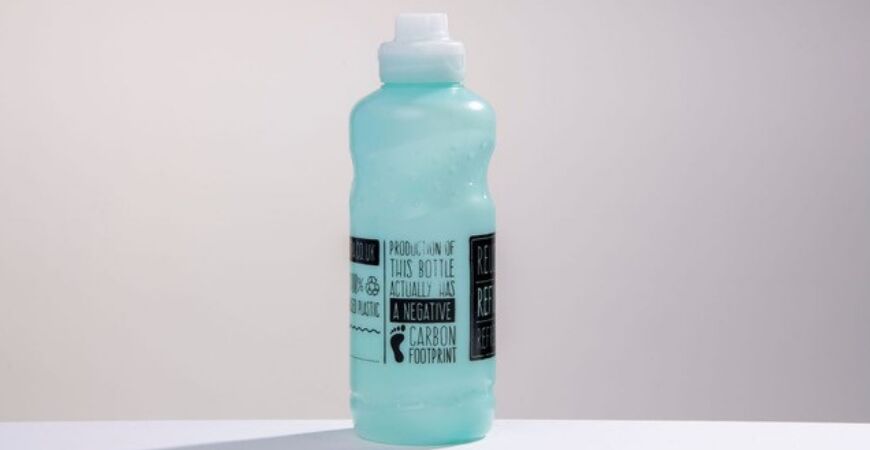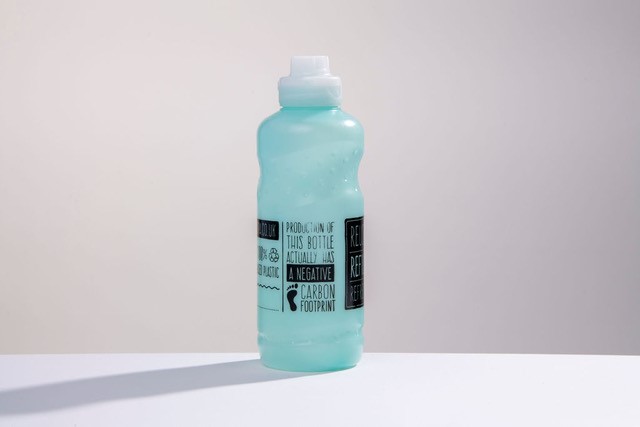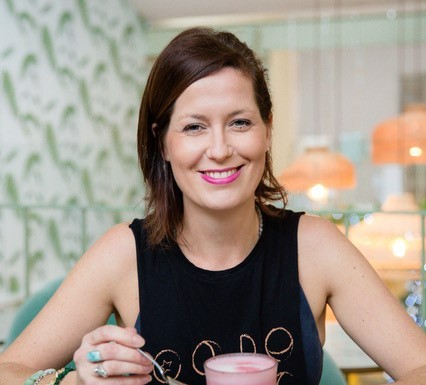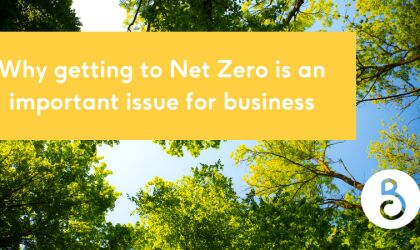

For a micro, small or medium sized company, the journey to net zero can be nearly as difficult as for the world’s largest companies.
The largest companies employ consultants and advisers and have huge budgets for reaching net zero. But smaller businesses have limited budget, manpower, and are mostly left to take on the net-zero commitment with much fewer resources.
As the world moves toward meeting the net zero targets set by the Paris Agreement, the role of small and medium businesses is gaining increasingly more attention. And, because many of these businesses are part of the supply chains — or customer base — of their much larger corporate partners, it’s essential for these businesses to start focussing on the small steps and pathways which will help to achieve the net zero commitment.
As a small business owner, I know first-hand the challenge that’s faced. I also understand how when we look at the end goal of being ‘net zero’, it can seem incredibly overwhelming.
I’ve been lucky enough to train with world leading Behavioural Scientist, from the Stanford Behaviour Lab – BJ Fogg. BJ Fogg outlines in his behaviour model that this destination way of thinking always sets you up to failure, because motivation alone is not enough to make real change in your business, or your personal life.
So, how about I challenge you to take on a different way of thinking? Instead of focussing on the end goal, we instead focus on small steps and the journey.
My journey started in 2018, when one of my team commented on how many bottles of water we were selling to our customers who attended yoga classes. Although we had ensured that the bottles were always recycled, and had a water bottle partner which has very good ethics, we were still buying and selling thousands of single use water bottles every month.

After a little bit of research we found a supplier of plant based reusable bottles, which we could also brand, and we educated our clients as to why we had made this change. This particular water bottle swap was our very first small step to sustainability, and our first step to addressing our single-use plastic issue. The results have exceeded our expectations. We have, since 2018, transformed hundreds of the products we sell, the products we use, and the products we buy. As such we’ve almost eradicated single use plastic in our business.
The way in which we transformed was focussing on one small thing at a time on the journey, choosing the quick wins first, then addressing the challenging areas –and we celebrated when we achieved success. We have also written our own Corporate Social Responsibility policy which all the team support.
Understanding quick wins
The quick wins are of course, the best starting point. These small wins are super easy to change and implement, and provide a much-needed catalyst to the small and medium sized business’ net-zero journey.
Most smaller businesses have a modest physical footprint, short supply chains, few employees to commute, and can see huge return from making these small changes. If you Google ‘small business and climate change’ thousands of ideas come up - buy green energy; drive EVs; upgrade energy-using equipment; decrease business travel; reduce office waste; turn off lights; plant trees; adjust thermostats; reduce food waste; educate employees.
There are so many to choose from…
So, where do you start?
Ask yourself the question: How can I reduce my impact? Here are couple of simple ways:
Encouraging walking to work, shared commuting, cycle to work schemes – and working from home if you can. My business is reliant on face-to-face service, so working from home was not an option – but my team, with our help, have implemented ways to reduce their personal footprint on the travel to and from work.
Reduce office waste. There are many small sustainable businesses like Harriet’s of Hove, who provide packaging free food, teas and coffee, and they even have a professional cleaning range. When you compare like for like costs, you’d be very surprised that they don’t cost more, plus there’s time and energy saved - as they even deliver.
Reduce promotional products. We all love a free pen every now and again, but going to so many tradeshows, offices and events, how many free pens do we actually need? Yes, there’s a real drive for items to be made from recycled materials – but this is simply masking the problem as opposed to focusing on the reduction in the first place. So next time, bring your own pen.
Next, separate out the challenging areas
Taking on everything at the same time will be set up for failure. By separating the challenging areas from the quick wins, you'll have more chance for success. Here are some examples of challenging areas:
Some smaller businesses typically don’t own their facilities or, in some cases, pay their own energy bills, making efficiency upgrades difficult. Being able to open a dialogue with a landlord maybe tricky, but an essential conversation.
If you contract out manufacturing and other key functions, what conversations can be had? We had to change suppliers for one of our core products to ensure all packaging can be returned and re-used as opposed to thrown away or recycled.
Smaller businesses are also far less likely to have dedicated staff to deploy on environmental issues, at least beyond compliance-related matters, making net zero someone’s extracurricular activity. We reward our team with a £25 for any change that the business implements, as I recognise that my team are my eyes and ears, looking out for ideas and making suggestions. Over the years team suggestions have proven so successful to our shared goal of making lasting change.
Those smaller businesses lack the buying power that can help drive down the cost of things like renewable energy, or alternative packaging materials. There is funding available to be able to make the transition to alternative packaging – the starting point is to have the conversation, then find out how you can make this happen.

Camille Pierson is Founder of The Float Spa. If you have any suggestions or ideas, contact Camille at: camille@thefloatspa.co.uk
Find out more about The Float Spa on their website here.
And, find more resources, help and information to getting your business to Net Zero on the Chamber's Net Zero business support page:
If you want to contribute to the Chamber blog, contact us on hannah@brightonchamber.co.uk



